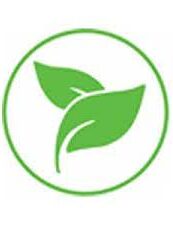Soil testing or soil analysis is the process of subjecting soil samples collected at specified depths to physical and chemical examination. This process reveals the composition of the soil in terms of moisture content, pH, elemental compostion and other parameters. The knowledge of soils is the essence of agriculture and the key to achieving food and nutrition security across the globe.
Soils are strongly connected to the human existence and well being. As such, some persons have described soils as the genesis of human civilization. This is because soils have social, economic and environmental benefits in improving livelihoods through agricultural activities. They also serving as a source of income and major contributor to national economies through agricultural activities. Soils serve as a medium for plant growth and storage of nutrients. A healthy soil promotes the protection of biodiversity and as well, contributes meaningfully to climate change adaption and mitigation.
Soil Conditions
The Global Soil Partnership (GSP) in a report on the status of world soil resources reports that majority of the soils across the globe are either in only fair, poor or very poor conditions. This condition has led to soil degradation as a result of soil erosion, soil salinization, and soil sealing. Additionally, soil compaction, soil biodiversity loss, soil acidification, soil contamination, soil organic carbon loss and nutrient inbalance. They further state that there are evidences that show that the world is fast approaching its limit of total fixation of Nitrogen and Phophorus use. This implies that to stop soil degradation, one major effort will be to stabilize and reduce Nitrogen and Phophorus fertilizer use.
The Neglect
Soils have been taken for granted over the years and it is important to note that soils are one of the world’s most fragile resources. Consequently, in the face of climate change and increasing demands for more sustainable food production, soil fertility management as a sustainable soil management practice is imperative to the achievement of food and nutrition security all around the world. This is because the quality and quantity of food produced is hinged on the status and health of soils. This is why the Sustainable Development Goals identify the need to restore degraded soils and improve soil health greatly.
Nigerian soils are not left out of this degradation status as Chude and Odunze (2015) stated that Nigerian soils are higly leached, resulting in moderate to high acidity, medium to low cation exchange and as well, low to very low organic carbon content leached as a result of soil erosion.
Precision nutrient management, a soil fertility and sustainable soil management practice ensures the supply of nutrients to balance up cases of insufficiency and unavailability in the right quantity and quality in a timely manner too. Soil testing ensures efficient precision nutrient management. It is a practice that involves the analysis of soils to ascertain the nutrients therein, to guide for proper fertilizer recommendations and use. Soil testing also ensures that the additional application of fertilizer improves crop performance in terms of quality and quantity significantly, without excessive waste or adverse environmental effect.
Adverse Effects
The adverse effects that arise from neglecting soil testing include excessive application of nutrients to soil, pollution of water bodies, and destruction of soil biodiversity. A shortage of plant nutrients which could lead to poor crop performance. This reduces the income of farmers and affects their livelihoods and as well, amplifies food-price volatility resulting from food shortages.
Conclusion
Soil testing facilities should be made readily available to farmers of all categories. This applies especially to small-holder farmers who make up the bulk of farming population. Due to the high costs associated with carrying out this activiy, they may not be able to afford soil testing except it is free.
Further reading, click HERE
Checkout videos HERE
